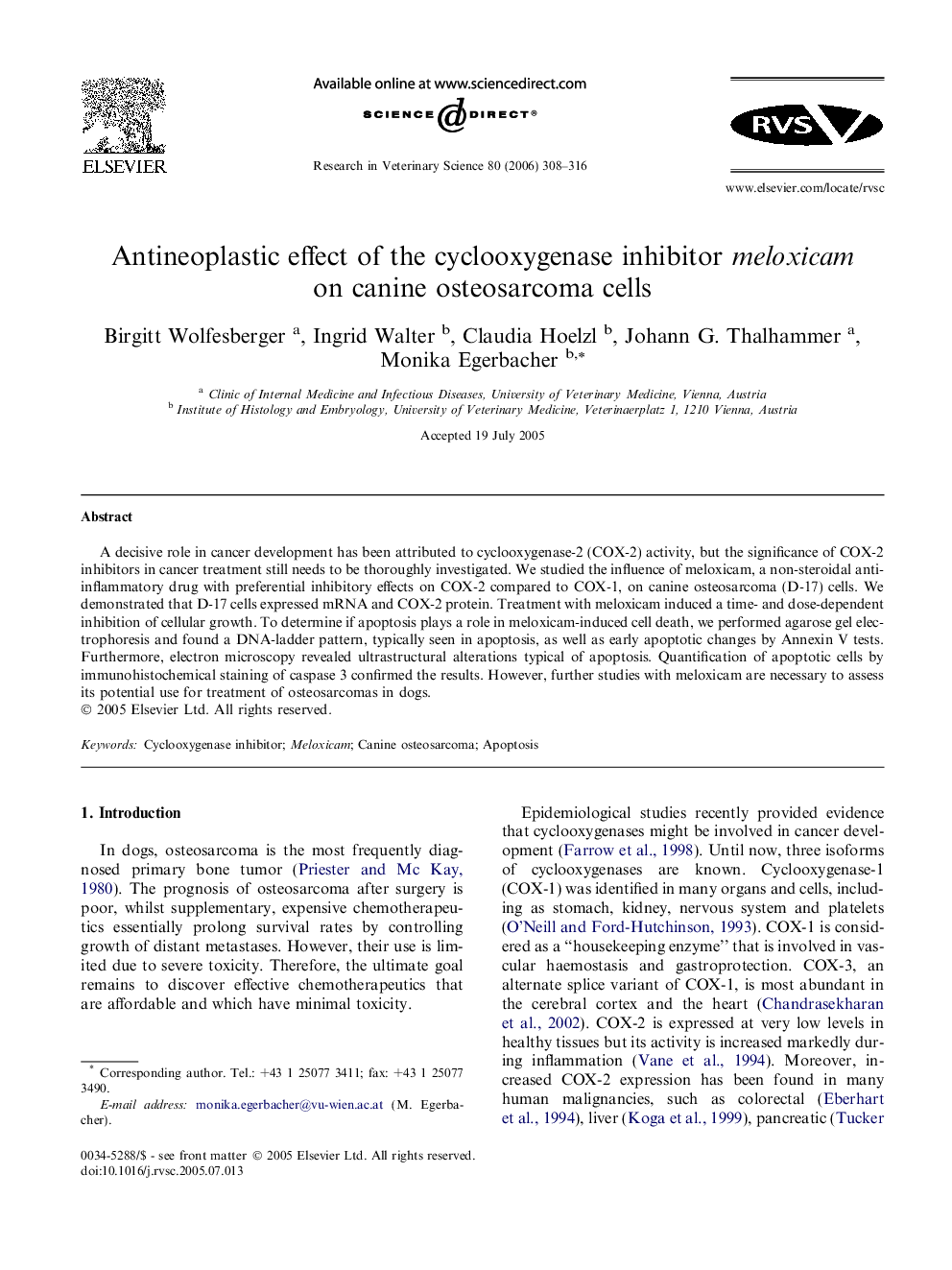| Article ID | Journal | Published Year | Pages | File Type |
|---|---|---|---|---|
| 2456556 | Research in Veterinary Science | 2006 | 9 Pages |
A decisive role in cancer development has been attributed to cyclooxygenase-2 (COX-2) activity, but the significance of COX-2 inhibitors in cancer treatment still needs to be thoroughly investigated. We studied the influence of meloxicam, a non-steroidal antiinflammatory drug with preferential inhibitory effects on COX-2 compared to COX-1, on canine osteosarcoma (D-17) cells. We demonstrated that D-17 cells expressed mRNA and COX-2 protein. Treatment with meloxicam induced a time- and dose-dependent inhibition of cellular growth. To determine if apoptosis plays a role in meloxicam-induced cell death, we performed agarose gel electrophoresis and found a DNA-ladder pattern, typically seen in apoptosis, as well as early apoptotic changes by Annexin V tests. Furthermore, electron microscopy revealed ultrastructural alterations typical of apoptosis. Quantification of apoptotic cells by immunohistochemical staining of caspase 3 confirmed the results. However, further studies with meloxicam are necessary to assess its potential use for treatment of osteosarcomas in dogs.
